Related Research Articles

Daniel Chester French was an American sculptor of the late nineteenth and early twentieth centuries, best known for his 1874 sculpture The Minute Man in Concord, Massachusetts, and his 1920 monumental statue of Abraham Lincoln in the Lincoln Memorial in Washington, D.C.

Samuel Eliot Morison was an American historian noted for his works of maritime history and American history that were both authoritative and popular. He received his Ph.D. from Harvard University in 1912, and taught history at the university for 40 years. He won Pulitzer Prizes for Admiral of the Ocean Sea (1942), a biography of Christopher Columbus, and John Paul Jones: A Sailor's Biography (1959). In 1942, he was commissioned to write a history of United States naval operations in World War II, which was published in 15 volumes between 1947 and 1962. Morison wrote the popular Oxford History of the American People (1965), and co-authored the classic textbook The Growth of the American Republic (1930) with Henry Steele Commager.

James Michael Curley was an American Democratic politician from Boston, Massachusetts. He served four terms as Mayor of Boston. He also served a single term as Governor of Massachusetts, characterized by one biographer as "a disaster mitigated only by moments of farce" for its free spending and corruption. He also served two terms, separated by 30 years, in the United States Congress and was a frequent candidate for other state and national offices. He was twice convicted of criminal behavior and notably served time in prison during his last term as mayor. He is remembered as one of the most colorful figures in Massachusetts politics.

Henry Hobson Richardson, FAIA was an American architect, best known for his work in a style that became known as Richardsonian Romanesque. Along with Louis Sullivan and Frank Lloyd Wright, Richardson is one of "the recognized trinity of American architecture".

Charles Francis Adams Jr. was an American author, historian, and railroad and park commissioner who served as the president of the Union Pacific Railroad from 1884 to 1890. He served as a colonel in the Union Army during the American Civil War. After the war, he was a railroad regulator and executive, an author of historical works, and a member of the Massachusetts Park Commission.
John King Fairbank was an American historian of China and United States–China relations. He taught at Harvard University from 1936 until his retirement in 1977. He is credited with building the field of China studies in the United States after World War II with his organizational ability, his mentorship of students, support of fellow scholars, and formulation of basic concepts to be tested.
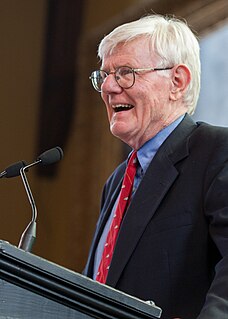
Gordon Stewart Wood is an American historian and professor at Brown University. He is a recipient of the 1993 Pulitzer Prize for History for The Radicalism of the American Revolution (1992). His book The Creation of the American Republic, 1776–1787 (1969) won a 1970 Bancroft Prize. In 2010, he was awarded the National Humanities Medal.
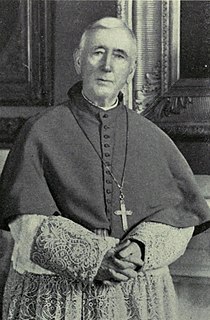
John Joseph Williams was an American bishop of the Roman Catholic Church. He was the fourth Bishop and first Archbishop of the Archdiocese of Boston, serving between 1866 and his death in 1907.
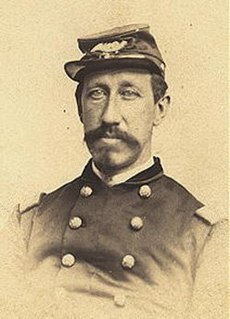
Edward Clarke Cabot was an American architect and artist.
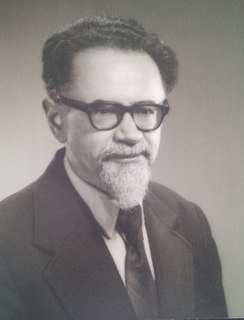
Ernst Badian was an Austrian-born classical scholar who served as a professor at Harvard University from 1971 to 1998.
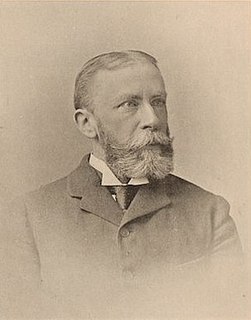
Ephraim Emerton was an American educator, author, translator, and historian prominent in his field of European medieval history.
Walter Muir Whitehill was an American writer, historian, medievalist, and the Director and Librarian of the Boston Athenaeum from 1946 to 1973. He was also editor for publications of the Colonial Society of Massachusetts from 1946 to 1978. From 1951 to 1972 Whitehill was a professor at Harvard University.
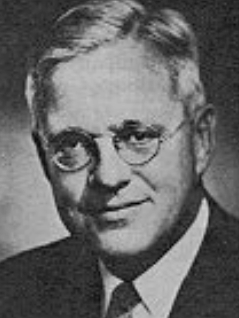
Thomas Hopkinson Eliot was an American lawyer, politician, and academic who served as chancellor of Washington University in St. Louis and as a congressman in the United States House of Representatives from Massachusetts.
Oscar Handlin (1915–2011) was an American historian. As a professor of history at Harvard University for over 50 years, he directed 80 PhD dissertations and helped promote social and ethnic history, virtually inventing the field of immigration history in the 1950s. Handlin won the 1952 Pulitzer Prize for History for The Uprooted (1951). Handlin's 1965 testimony before Congress was said to "have played an important role" in passage of the Immigration and Nationality Act of 1965 that abolished the discriminatory immigration quota system in the US.
Andover Newton Theological School (ANTS) was a graduate school and seminary in Newton, Massachusetts. Affiliated with the American Baptist Churches USA and the United Church of Christ. It was an official open and affirming seminary, meaning that it was open to students of same-sex attraction or transgender orientation and generally advocated for tolerance of it in church and society.
Douglas L. Wilson is the George A. Lawrence Distinguished Service Professor Emeritus of English at Knox College in Galesburg, Illinois, where he taught from 1961 to 1994. He then was the founding director of the Robert H. Smith International Center for Jefferson Studies at the Thomas Jefferson Foundation (Monticello) in Charlottesville, Virginia. In his retirement, he returned to Knox College to found and co-direct the Lincoln Studies Center with his colleague Rodney O. Davis.
Richard B. Bernstein is a constitutional historian, a distinguished adjunct professor of law at New York Law School, and lecturer in law and political science at the City College of New York's Skadden, Arps Honors Program in Legal Studies in its Colin Powell School for Civic and Global Leadership.
This article is a timeline of the history of the city of Boston, Massachusetts, USA.
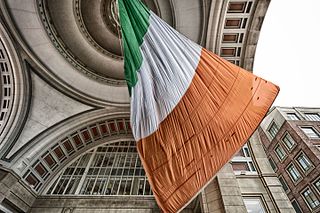
People of Irish descent form the largest single ethnic group in Boston, Massachusetts. Once a Puritan stronghold, Boston changed dramatically in the 19th century with the arrival of immigrants from other parts of Europe. The Irish dominated the first wave of newcomers during this period, especially following the Great Irish Famine. Their arrival transformed Boston from an Anglo-Saxon, Protestant city into one that has become progressively more diverse. These people hired Irish as workers and servants, but there was little social interaction. In the 1840s and 50s, the anti-Catholic, anti-immigrant Know Nothing movement targeted Irish Catholics in Boston. In the 1860s, many Irish immigrants fought for the Union in the American Civil War, and that display of patriotism helped to dispel much of the prejudice against them.

The following is a list of works about Boston, Massachusetts, USA.:
References
- ↑ "The Emerald City". The New York Times. July 16, 1995.
- 1 2 3 4 Feeney, Mark (May 21, 2012). "Thomas H. O'Connor, Boston College historian, considered 'dean' of Boston's historians, dies at 89". The Boston Globe. Archived from the original on September 6, 2016.
- ↑ "Leading Boston historian Thomas O'Connor dies at his home in Milton". The Patriot Ledger. May 21, 2012.
- ↑ "Death of Thomas H. O'Connor". The Irish Echo. May 30, 2012.